How to get your first Customer
A practical guide for founders on how to get their first customers by doing unscalable things, learning sales, managing a pipeline, charging early, and working backwards from sales goals.
What will be covered
- Do things that don’t scale
- How to do sales
- Sales funnel
- Charge for your product
- Working backwards from your goal
Do things that don’t scale
- Many founder incorrectly believe that they only need good product and growth will take care of it’s self
- Good product rarely build through isolation but together with customer
- Start-up takes off because founder make them take off
- We have to manually recruit our customer
- Startup valley below is visualize how most common start-up moments
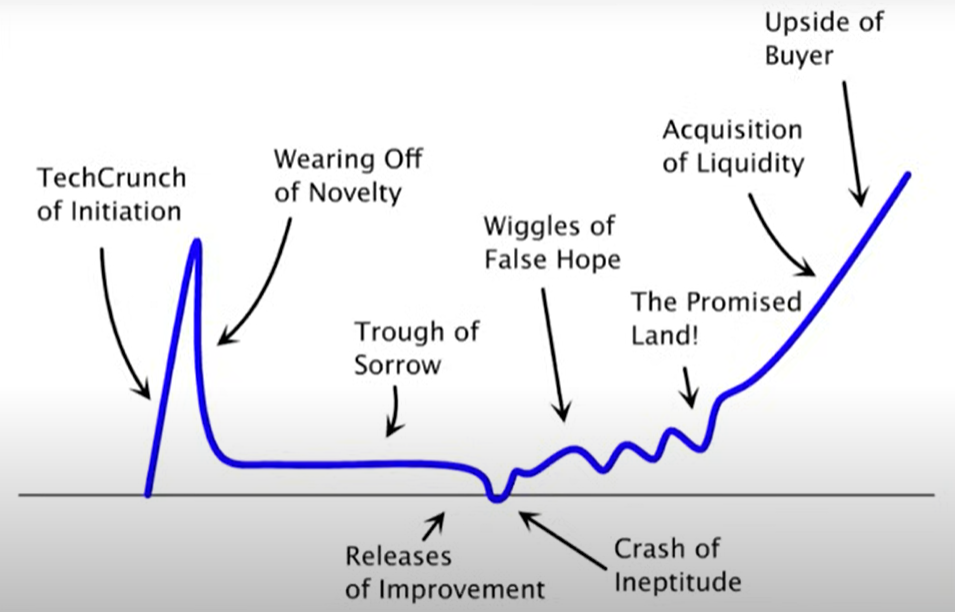
Founder should learn how to do sales
- Why founder need to do sales themself?
- You need to know your customer
- It gives you control over your destiny
- Don’t hire a sales team until you know how to do sales yourself
- Don’t worry if you don’t know how to sell - you can learn
- Knowing the problem, your product & market makes you an expert
- A love for solving customer problem is infectious
- How to write a great sales email
- It should be short. 6-8 sentences
- Clear language (no jargon / Buzzword)
- Say exactly what you do and how it works
- Address the problem of your potential customer
- No HTML (plain text)
- Say you’re the founder & describe your success
- Describe why you & your team are impressive
- Show not tell
- Don’t say you’re an expert or experiences; include social proof like work in impressive company in the past
- Include your website
- Keep it simple (screenshot of product and bullet point of what it does; sometimes short video or gifs)
- Ask for a call
The Sales Funnel
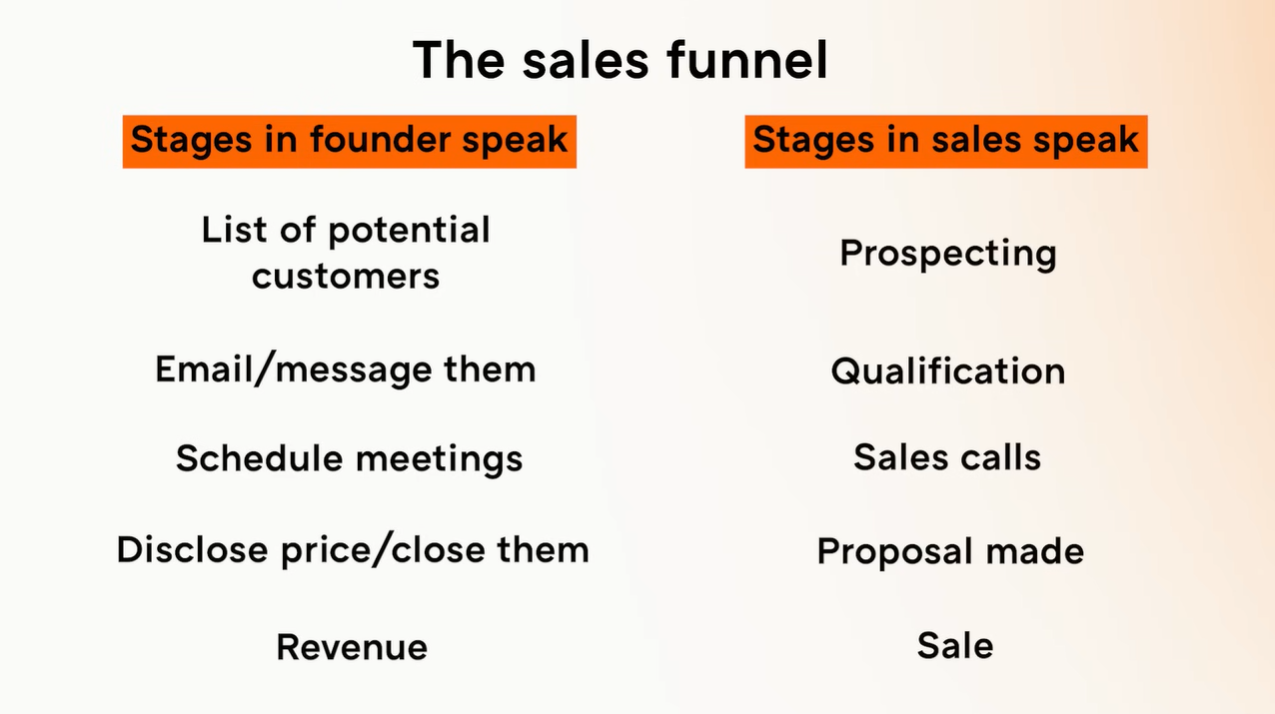
- Some data we need to collect for targeting our first customers

- Your first customer should be your easiest
- We can pick only the one that most likely closed
- You should have a big pipeline of potential customers - prioritize correctly
- Don’t be afraid letting customer go
- Sell to your network
- Sell to startups
- 95% of people aren’t early adopters - avoid them
- To reach early adopters is just to send more outbound messages
Charging your first customer
- Why we need to charge?
- If you are don’t charge, you’re not a company
- it’s a sign that you’re providing value
- If they don’t want to pay, you should move on
- No free trials
- For B2B: offer a money back guarantee or opt-out from annual contract
- For consumer: ask for credit card upfront
- Increase your price until customers are complaining but still paying
Working backwards from your goal
-
Tracking all the conversion of our sales (Because we don’t know our conversion rate)
-
Outbound sales is ultimately a numbers game
-
You cannot close 5 customers from 10 leads
-
Most founders don’t work their way backwards, resulting in they don’t get enough sales done


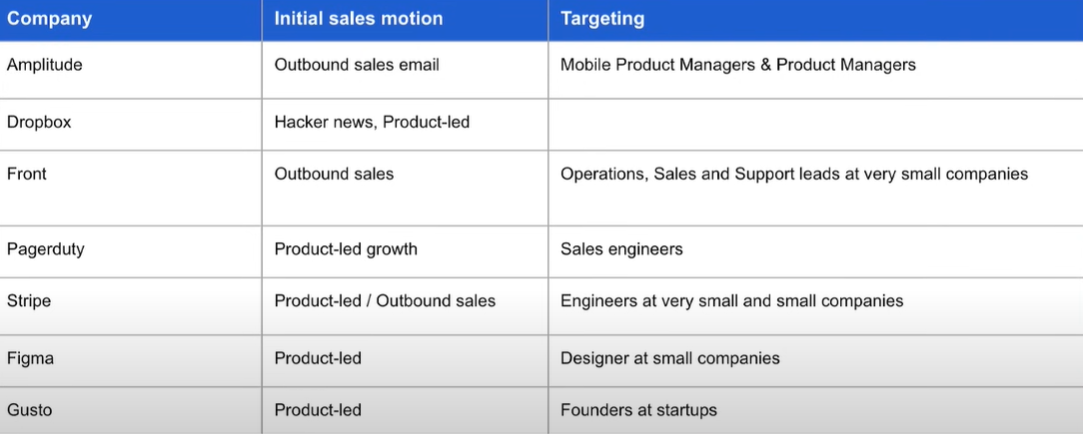
-
The founder is the one who needs to do the demos; because they know the product, example emails:


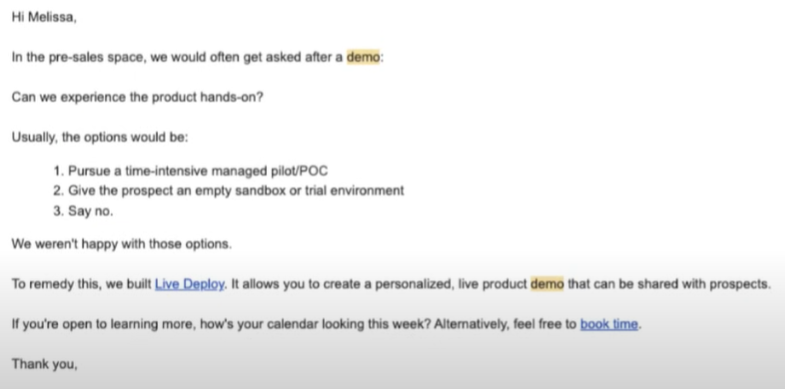
Conclusion / Most Common sales mistakes
- Founders don’t send enough outreach
- Believing that something else but sales will solve your sales problems
- Outsourcing sales
- Not qualifying your customers enough in first call
Potential tools you can use for sales:
 Potential books you can read about sales:
Potential books you can read about sales:
 Other way to grow as startups:
Other way to grow as startups:
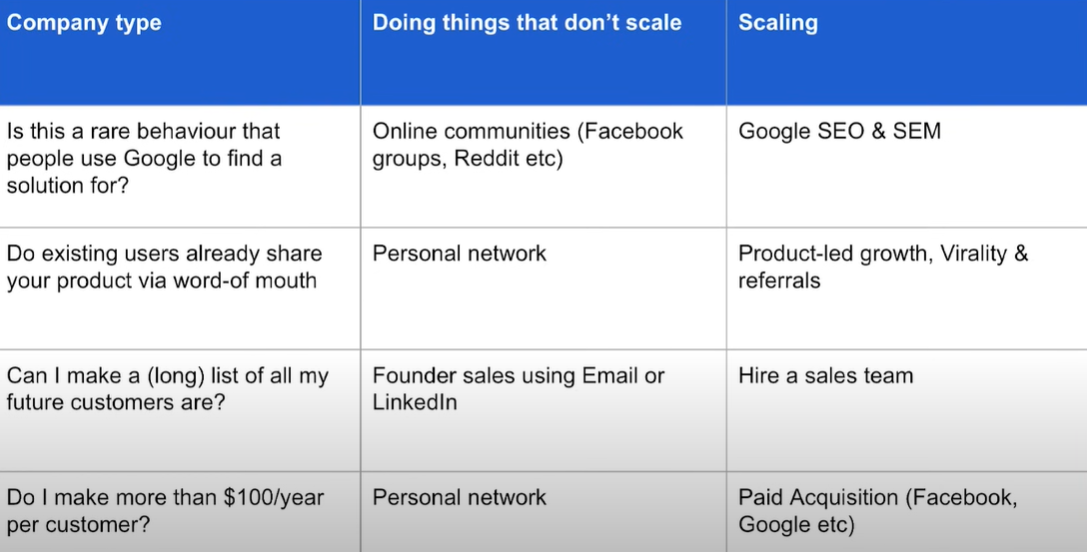
Notes
[1] The phrase “Do things that don’t scale” is originally from Paul Graham’s iconic essay. It’s a guiding YC principle that early founders should manually hustle to get users, rather than prematurely trying to automate growth.
[2] The idea that founders must learn to sell comes from YC’s repeated emphasis that you can’t outsource core startup activities early on. As Sam Altman and others have put it: “If you can’t sell your own product, no one else can.”
[3] Sales tactics like founder-led outreach, short plain-text cold emails, and personalized follow-ups reflect best practices from early-stage YC companies and insights shared in talks by founders of companies like Brex, Segment, and Atrato.
[4] The sales funnel framework, pipeline management tips, and emphasis on focusing only on early adopters are consistent with teachings from YC Sales School (especially by Tyler Bosmeny, former YC visiting partner and CEO of Clever).
[5] Charging early and not offering free trials is common YC advice—particularly in B2B. The rule of thumb: if they won’t pay, they’re not really your customer. It's echoed in advice from founders like Patrick McKenzie and Garry Tan.
[6] The concept of working backwards from your goal—understanding conversion rates, modeling your outreach targets, and tracking the math of sales—is foundational to effective outbound strategy and was popularized in YC startup sales templates.
[7] The tools and books referenced at the end of the post are standard in modern SaaS and founder sales playbooks. Notable recommended reads include The Mom Test (for customer validation), Predictable Revenue, and SPIN Selling.